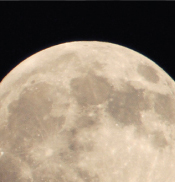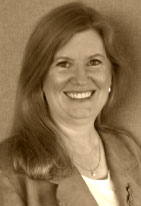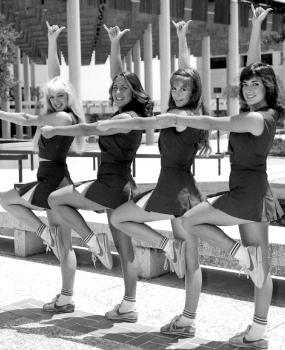Features
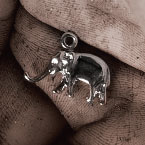
The Gift of Humanity
Marketing professor Tina Lowrey's research in consumer behavior led her to study gift-giving among prisoners in Nazi concentration camps. In a place of such horrors, she asked, what could be the motivation for acts of kindness and selflessness?

Ambassadors of Goodwill
Since 2004, eight UTSA students have received prestigious Rotary Ambassadorial Scholarships. Three of the more recent recipients are Honors College grads Rafael Veraza, Rawan Arar and Mitra Miri, who have represented UTSA and Rotary around the world.
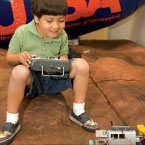
Fun Factor
The Interactive Technology Experience Center, filled with robots, an electron microscope, 3-D printer and more, is meant to give students from kindergarten to high school a "moon-landing" moment that will encourage them to pursue careers in science, technology, engineering and math.
Investigations
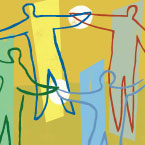
Activity Does a Mind Good
Sociology professor Gabriel Acevedo's research has shown that, just like religious involvement, there's a link between being actively engaged in the community and mental health.

Solar Panels Expected to Reduce Campus Utility Costs
UTSA will receive $1.08 million in Department of Energy stimulus funds to install solar panels on two campus buildings.
Flowering Work
UTSA biology grad student studies the bracted twist-flower, a rare wildflower that only grows in Central Texas
Syllabus
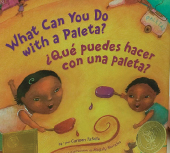
Cultural Mirrors
Who better to teach the course Multicultural Literature for Children than an award-winning writer of multicultural books for kids? Read about San Antonio's own Carmen Tafolla.
Roadrunner Sports
Sports Briefs
Men's tennis team wins conference championship; football schedules taking shape; men's track and field squad captures fifth consecutive Southland crown.
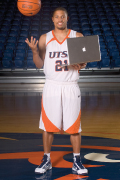
Senior Moment
Basketball guard Devin Gibson, who will be UTSA's only returning starter this fall, wants to win a conference championship and an NCAA tournament game or two. "I have one more year to do it," he said.
In the Loop

Classy digs
UTSA recently dedicated its state-of-the-art Applied Engineering and Technology Building, designed to support world-class research and teaching in science and engineering.
Bodenstedts score a field goal
UTSA receives a million-dollar gift to support its football program.
Governor appoints UTSA professor as state demographer
UTSA is the home of the Texas state demographer, the third from the university.
New energy
Les Shephard, an internationally renowned expert on energy policy, joins UTSA after a long career at Sandia National Laboratories.
Reaccreditation expected after QEP review
UTSA's Quality Enhancement Plan, known as the QEP, was reviewed by the Southern Association of Colleges and Schools Commission on Colleges (SACS-COC) in March.
ITC enters national arena
The UTSA Institute of Texan Cultures moved toward national prominence when it was accepted into the Smithsonian Affiliations program in January.
Alumnus in chief
Jim Mickey '78, who spent 30 years in the telecommunications industry, was named associate vice president for alumni programs and marketing in July.
Air Force ROTC recognized as best in nation
Air Force Detachment 842 recently was awarded the Air Force ROTC Right of Line Award, the most prestigious award for AFROTC detachments.
Alum named police chief and director of public safety
Steve Barrera '82 was named chief of police and director of public safety for UTSA.
Class Notes
Alumni Gala to honor outstanding contributions
The 11th annual Alumni Reflections Gala will be held Aug. 28.
Pam Brunson '89
Call, raise, fold, all-in. Now flop, and don't forget to hold 'em. A lot of folks speak poker, but not many are fluent enough to make a living at it. Pam Brunson is one.
Mark Wohlfarth '94
Wohlfarth earned his degree in architecture while working full time. It was a long seven-year journey, but ultimately the connections he made during college launched his career.
Editor's Note
Moon Landings
Sitting in his house in India, listening live on his family's radio as man walked on the moon for the very first time, 10-year-old Mauli Agrawal had his a-ha moment. An epiphany. What he today calls his "moon-landing" moment.
If man could walk on the moon, it took an amazing feat of engineering to get him there. He wanted a piece of that. Alive for only a decade, he knew he was going to be an engineer.
My "moon-landing" moment happened when I was in eighth grade. A classmate had just been killed in a drive-by shooting, the victim of being at the wrong place at the wrong time. At her funeral, I watched as news reporters shoved microphones and recorders in the faces of the grieving, asking the inane question "How do you feel?" I felt angry. I felt violated. I knew her story needed to be told, and I knew there was a better, more compassionate way of telling it.
That's when I decided I would be a journalist. That tragedy was a defining moment and one that still guides me today.
The lucky among us have had similar moments where we just know what it is we want to do "when we grow up." Engineers. Teachers. Doctors. Musicians. Writers. Parents. Even luckier are those who get to pursue their dreams, even if it is only to stumble upon another completely different life plan.
With the help of passionate educators, Agrawal, who pursued his engineering dream and is now the dean of the College of Engineering, has created the Interactive Technology Experience Center. Its purpose is to help children find their life's path, ideally in the fields of engineering, science, math and technology. But really, they just want to provide a place to excite, educate and motivate. As they say, they hope to spark curiosity.
They want to create other "moon-landing" moments. Here's to yours.
Saludos,
—Lety Laurel
Guest Columnist
What's a college for?
With apologies to Robert Browning, I have heard this mangling of his poetry running through my head lately: Our reach must exceed our grasp, or what's a college for?
I wonder about the answer to that question as I listen to the debates about the costs of higher education. I think about it when I hear parents worry about job opportunities for their students based on their choice of majors—while I know that our graduates will find careers, maybe even in fields that haven't been invented or imagined yet.
But during these past few weeks, I've been reminded yet again that as important as these issues are, I think they ignore the greater questions presented by the transformative power of education. We have all felt the wonder of learning, though maybe not as often as we might like. We have enjoyed that truly awesome experience of understanding a concept that was difficult or of gaining new insights into questions that are important to us and to others. For some of us, it may be linked to a great class where the teacher's passion for the subject helped us see that topic in an entirely new way. Sometimes that experience results in finding a new major and a new career; sometimes it remains an area that fascinates us only as a hobby. For you, it might have happened during a service project or after taking on a leadership role that forced you to stretch, or maybe it was handling a lab experiment gone wrong or creating something new in an art studio.
The ways transformative learning can happen are nearly infinite, and while these experiences can, should, and, I hope, do happen outside the world of higher education, the reality is that colleges and universities are uniquely designed to create such opportunities.
Campuses are often places for individuals or groups to exercise their rights under the First Amendment and speak freely, in a public forum, about an idea that may be offensive, even painful, to others. When this happens, there is often a firestorm of e-mails, phone calls, articles in the press, expressions of outrage. And yet, when a public university has a clear understanding of its larger mission, amazing things can happen in spite of this furor. In the midst of all the loud voices, a space can be created where values can be challenged and supported, ideas can be tested and strengthened or found wanting, and widely disparate opinions can be shared and heard.
In other words, learning can happen.
The process is often messy and uncomfortable, and sometimes it can be a lot of "sound and fury signifying nothing" to quote Macbeth, but as Browning reminds us, our ideals do sometimes exceed our ability to live them and our reach does exceed our grasp. But offering that stretch and supporting students, faculty, staff, alumni and the greater community in that reach for greater understanding, and creating those opportunities for each of us to be transformed by our learning, well, that's about as good an answer as I have found to the question, "what's a college for?"
—Gage Paine
Read More
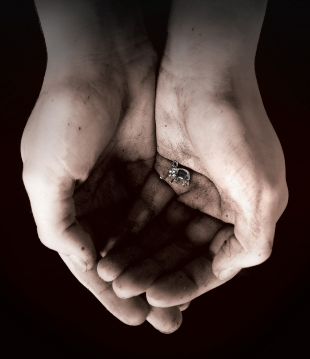
In the Background
A simple gift—an elephant charm—given from one prisoner to another in a Nazi concentration camp, offers lessons in what makes us human. See “The Gift of Humanity” on Page 22. Photo by Kemp Davis Photography.




